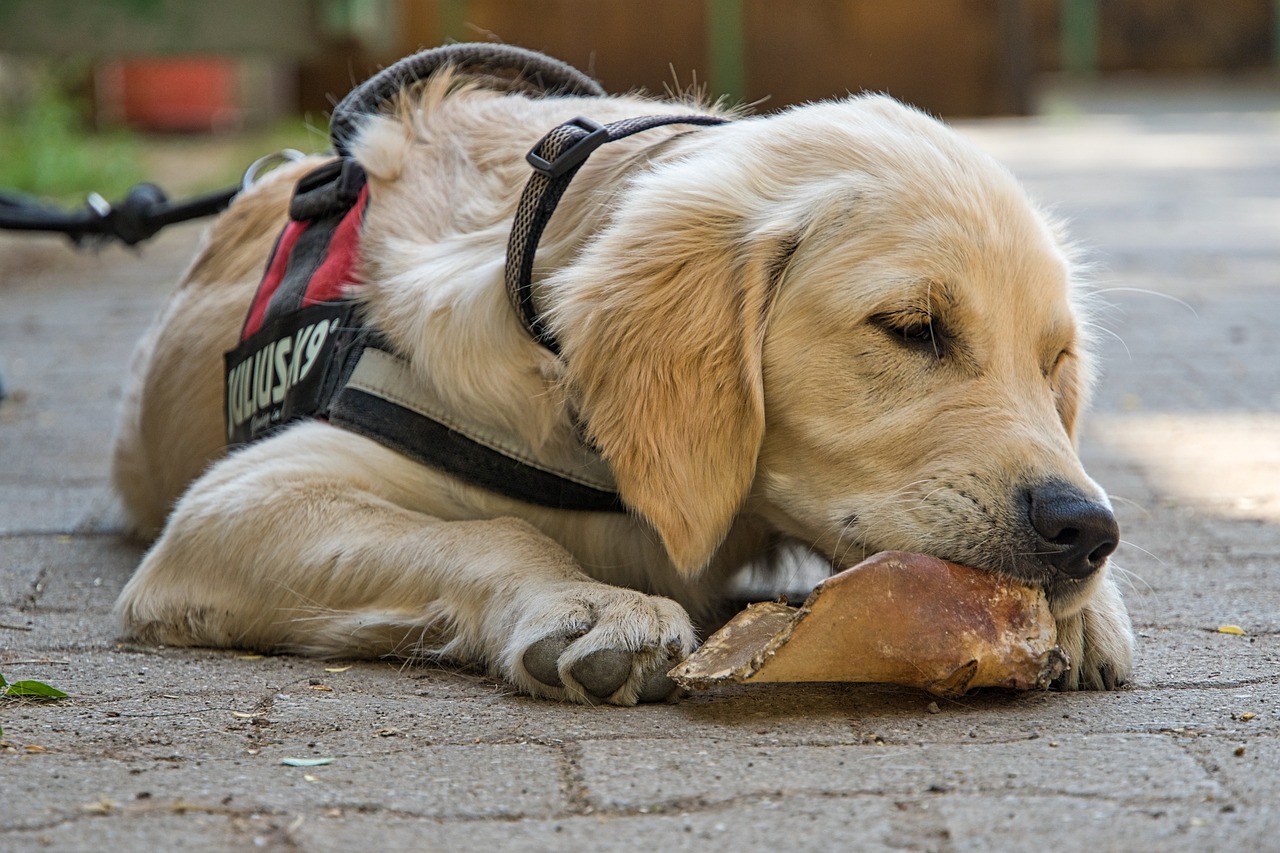Some dog breeds appear to have an insatiable appetite, ready to eat whatever they find. This gluttonous behavior can sometimes lead to amusing stories, but also poses significant health risks, such as obesity, digestive problems, or even poisoning from consuming toxic substances. Understanding which breeds are more inclined to eat indiscriminately can help owners take preventative measures to protect their pets’ health, ensuring they receive a balanced diet and avoid potential dangers. Can go. This article will explore eight dog breeds that are known for their tendency to eat just about anything, exploring the reasons behind their gluttonous habits and providing insight on how to effectively manage their dietary intake.
1. Labrador Retriever
Labrador Retrievers are famous for their friendly natures and high energy levels, but they are also infamous for their bottomless bellies. Labs often eat whatever they can get their hands on, from table scraps to non-food items. This breed’s intense appetite is partly due to genetics, as some Labs have a gene mutation associated with increased food-seeking behavior. Managing a Lab’s diet requires vigilance and discipline on the part of the owner, including using secure litter boxes, avoiding human food as food, and following a strict feeding schedule. Monitoring their weight and regular veterinary checkups are important to prevent obesity and related health problems.
2. Beagle
Beagles, due to their keen sense of smell, are prone to sniffing things out with their noses, allowing them to eat almost any food item. Originally bred as hunting dogs, their instinct to follow scent often leads them to food sources, regardless of whether it is suitable for consumption or not. Beagle owners should be vigilant about leaving food within reach and ensure that outdoor areas are free of potential toxins. Providing adequate exercise and engaging activities can help redirect their cleaning behavior into more productive outlets.
3. Golden Retriever
Golden Retrievers are another breed that is notorious for everything. Their friendly nature often leads them to human food, which they are usually very happy to “clean up”. However, their desire to eat non-food items is a concern and requires owners to puppy-proof their homes, removing small items that could be ingested. Feeding Goldens a balanced diet and keeping them mentally and physically stimulated can help reduce excessive food-seeking behavior and maintain their overall health.
4. Dachshund
Dachshunds may be small, but their appetite and curiosity for food can lead them into dietary mischief. Their hunting background contributes to their tendency to explore and savor everything that comes their way. Dachshund owners need to closely monitor their pet’s environment to prevent ingestion of harmful substances and ensure that their food intake is carefully controlled to avoid weight gain, as obesity is common in the breed. Can increase problems.
5. Boxer
Boxers are energetic and playful, qualities that extend to their eating habits. They are known to eat their food quickly and are not particularly discerning about what is contained in the food. This may lead to gastrointestinal problems or consumption of dangerous items. Slow feeder bowls and regular, engaging exercise can help slow their eating and divert their boundless energy from food-related mischief.
6. Bulldog
Both the English and French Bulldogs are known not only for their distinctive looks but also for their ability to eat just about anything. Their laid-back nature is not limited to their eating habits, as they can be quite opportunistic when it comes to food. Owners should be mindful of their diet to prevent obesity, to which Bulldogs are prone, and ensure their living space is free of small objects or toxins that may be ingested during their exploratory sniffing.
7. Pug
Pugs are charming companions with a big appetite for food and life. Their small stature does not limit their consumption, often overeating when given the chance. Pugs require careful dietary management to prevent obesity, which can lead to serious health problems, especially given their brachycephalic nature. Engaging in toys and puzzles can help satisfy their curiosity without resorting to food as entertainment.
8. Great Dane
Despite their impressive size, Great Danes have surprisingly sensitive stomachs and can be quite indiscriminate in their eating habits. Their excessive appetite can lead them to eat quickly and sometimes swallow objects that are not meant for consumption. Owners need to closely monitor their diet and provide a quiet, peaceful place to eat to prevent bloat, which is a serious health risk for large breeds like Great Danes.
Dogs who eat anything require careful care from their owners to protect their health. Breeds like Labrador Retrievers, Beagles, Golden Retrievers, Dachshunds, Boxers, Bulldogs, Pugs and Great Danes are especially known for their insatiable appetites. It is necessary to implement strategies such as safe waste management, regulated feeding schedules and providing mental stimulation to prevent overeating and consumption of harmful substances. With proper management and care, owners can ensure that their gourmet companions live healthy, balanced lives.

